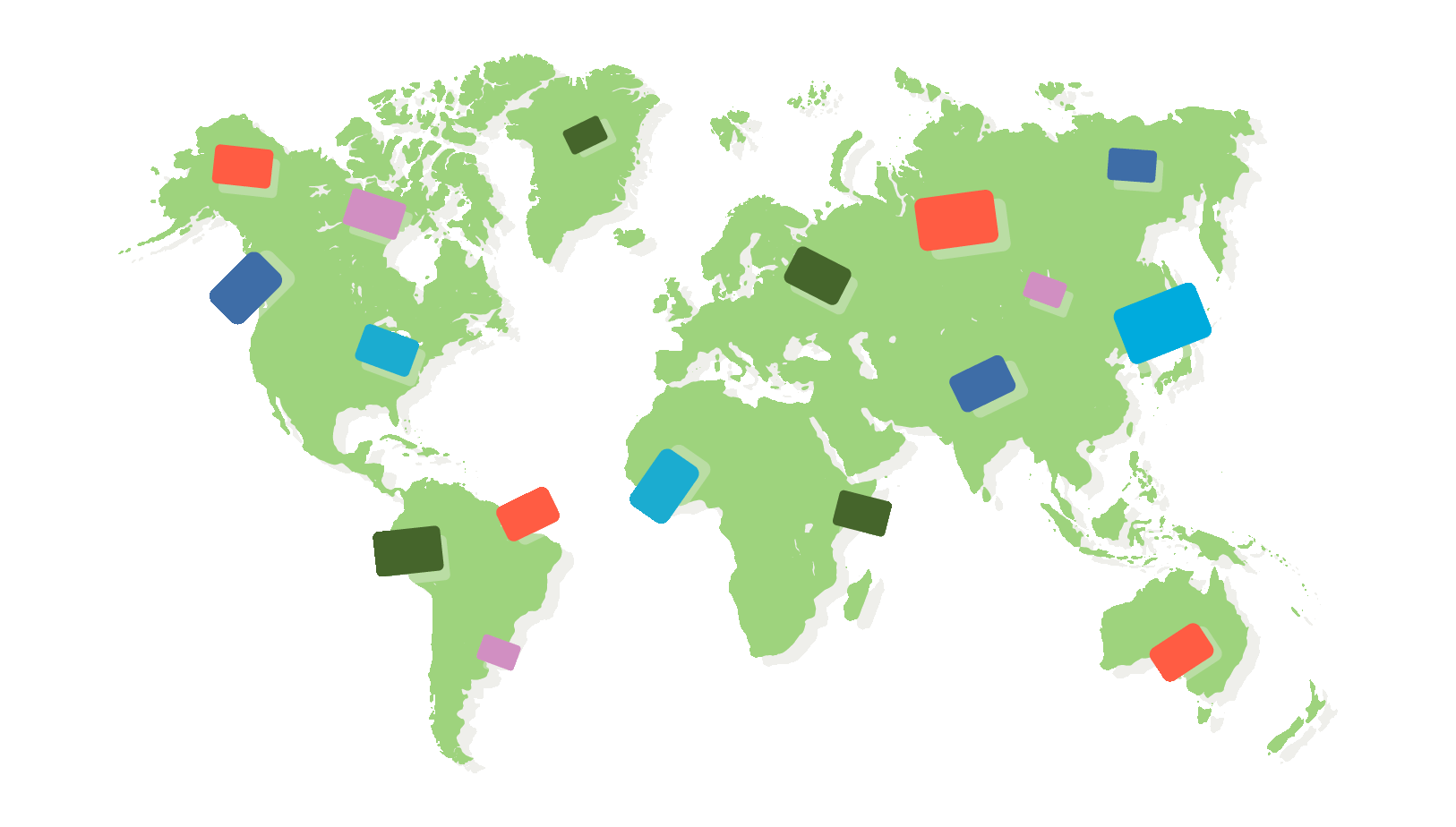Boosting Innovation and Results: The Power of Incentives in Research


By Signe Hegart
August 31, 2023
In today’s fast-paced and competitive business landscape, companies are constantly searching for new ways to boost innovation and drive results. One powerful tool that has been proven to be effective in achieving these goals is the use of incentives in research. By offering research incentive rewards to participants, companies can incentivize them to participate in research studies, providing valuable insights and driving innovation.
In this blog post, we will explore the concept of incentives in research, provide examples of how they can be used effectively, and offer tips on how to create an incentive research program that drives innovation and results.
Jump to section
What are Incentives in Research?
Incentives in research refer to the use of rewards or inducements to encourage individuals or groups to participate in research studies. These incentives can take various forms, such as monetary compensation, gift cards, discounts, or other tangible rewards. The purpose of using incentives in research is to motivate participants to provide accurate and reliable data, as well as to minimize attrition rates.
If you’re not compensating people for their feedback, one, they are a lot less likely to give you any in the first place. So you’re fighting to get it. two, the feedback that you do get is going to be lower quality, because free information is horribly biased
Holly Cole, CEO of the Research Operations Community
What to do if the Incentives in Research needs to be globally? ????
- If you need to implement incentives in research on a global scale, don’t worry, Huuray got you!
- It’s Free. 100 % Customizable. Available 24/7. Send to anyone – anywhere in the World.
- With Huuray you will have nearly unlimited options worldwide to choose from
- Huuray gives you access to 5000+ digital rewards & gifts across 100+ countries and 80+ currencies.
Global Incentive in Research?
We have digital reward options in +100 countries around the world. Gift Cards, PrePaid Cards, Charities and much more. Sending rewards internationally is a breeze with Huuray. All for free
Why are Incentives in Research Important?
Incentives in research play a crucial role in motivating participation, enhancing data quality, and ensuring the overall success of research endeavors. Here’s why incentives are important in research:

Increased Participation
Offering incentives can significantly increase the participation rates in research studies. People are more likely to be motivated to take part in a study if they see a personal benefit or reward associated with it. This leads to larger and more diverse samples, improving the generalizability of the research findings.

Enhanced Data Quality
Incentives can also improve the quality of data collected in research studies. Participants are more likely to provide honest and accurate responses when they are incentivized, as they perceive their time and effort to be valued. This leads to more reliable and valid results, allowing companies to make informed decisions based on accurate data.

Retention and Attrition
Incentives can help reduce attrition rates in longitudinal or complex research studies. By providing ongoing incentives or rewards throughout the duration of the study, companies can motivate participants to remain engaged and committed. This improves the retention of participants, ensuring the integrity of the research and reducing potential bias.

Innovation and Insights
Incentives in research can also drive innovation and generate valuable insights for companies. When participants are incentivized to provide accurate and reliable data, they may be more willing to think creatively and provide unique perspectives. This can lead to new ideas, solutions, and insights that may not have been uncovered without the use of incentives.
I am of the mindset that you should always pay [participant] for their time. Because incentives actually encourage people to show up, and you’re showing them that they’re giving value.
Roberta Dombrowski, former head of UXR at User Interviews
Read also: Digital Rewards – A Need for Legendary Marketing Campaigns
Using gift cards as participation incentives ????
Gift cards are a popular choice for incentivizing research participation. They offer flexibility and variety, allowing participants to choose a reward that aligns with their personal preferences. Gift cards can be used for a wide range of purchases, including online shopping, dining out, or entertainment activities. This versatility makes gift cards a desirable incentive for researchers and participants.
Implementing a research incentive program with gift cards is relatively simple. Here are some steps to consider:
1. Determine the budget: Decide how much you are willing to allocate for research incentives. This will help you determine the value and quantity of the gift cards you can provide.
2. Choose the right gift cards: Consider the preferences and interests of your researchers when selecting gift cards. With the freedom of choice option that Huuray offers, you will give the participant or researcher 5,000 options to choose from and is available in +100 countries
Its beneficial for both you and the recipient and here is why:
- An easy way to solve the struggles with gifting to people you don’t necessarily know on a personal level
- Unique local offers in each country
- Delivery in digital or physical form
- Easy redeem solution through our page
- Customizable design options
Related: Optimizing UX Research Incentives: 4 Essential Steps
3. Set clear criteria: Define the specific actions or milestones that researchers need to achieve in order to qualify for a gift card incentive. This could include completing surveys, contributing to a specific project, or achieving certain research goals.
4. Communicate the incentive program: Clearly communicate the details of the incentive program to your researchers. Make sure they understand the criteria for earning gift cards and how they will receive them. Use various communication channels, such as email, newsletters, or internal platforms, to ensure maximum awareness.
5. Track and distribute rewards: Keep track of researchers’ progress and ensure timely distribution of gift cards. This can be done manually or through automated systems such as Huuray‘s platform, which allows for easy tracking and distribution of gift cards.
6. Evaluate the program: Systematic reviewing the effectiveness of your research incentive program and collecting feedback from researchers to understand their satisfaction and identify areas for improvement. Adjust the program as needed to maximize its impact and encourage continued participation.
Incentives in research play a crucial role in motivating participants to actively engage in research activities. By offering gift cards as incentives, you can provide a flexible and desirable reward that aligns with individuals’ preferences.

Read also: Academic Research Incentives: How, Where And When Does It Work?
Creating an Incentive Research Program
If you are considering implementing an incentive research program, here are some steps to help you get started:
1. Take into account the prevailing norms in your research field and the anticipated preferences of potential participants. Evaluate the advantages and disadvantages of the incentive you’re leaning towards.
2. When deciding on how much to spend on each participant its important to balance fairly the amount while also looking at the contribution the participant is making. When deciding on an appropriate amount you can look into these factors:
– Socioeconomically and demographic attributes of your study participant group, including factors like income and age
– Social and cultural norms locally
– Expertise or specialty knowledge required of study participants
– Standards for your industry or area of research
3. If your research is relatively brief, like an online survey, it might be best to provide a single incentive either at the start or upon completion. On the other hand, there is also research studies which often involve multiple stages, data collection points, or interactions with participants over time. Retention becomes important to ensure that participants don’t drop out or become disengaged prematurely.
However, for more extensive studies spanning multiple phases over a prolonged time, incentives could be divided out to maintain the participants engagement and try to avoid any withdrawals.
4. Decide how you will distribute the incentives. Should it be digitally or in person?
5. Clearly communicate the incentives program to your participants. Provide detailed information about the incentives, including how they can be earned and redeemed. Use clear and concise language to avoid any confusion or misunderstandings.
6. Consider Randomized Controlled Trials: If feasible, consider implementing randomized controlled trials (RCTs) to assess the impact of incentives on research outcomes. RCTs can provide valuable insights into the effectiveness of incentives and help you make data-driven decisions.
When implementing incentives in research its important to include participants who may be experiencing socioeconomic disadvantages. Socioeconomically disadvantaged individuals may face obstacles in taking part in studies due to limited resources and time. Incentives can help level the playing field by encouraging their participation and ensuring more diverse representation. However, it’s vital to implement incentives thoughtfully, considering cultural sensitivity and avoiding exploitation. The goal is to strike a balance that motivates participation while respecting the genuine interest of participants in contributing to research.

But what about gift for researchers?
Incentives in research can be applicable to a wide range of fields and industries. Whether it’s scientific research, market research, product development, or process improvement, the use of incentives can effectively boost motivation, heighten participation and recruitment while drive better results. Any research project that requires creativity, critical thinking, and problem-solving can benefit from the implementation of incentives.
Successful research incentives play a crucial role in driving innovation, advancing knowledge, and shaping the path of scientific discovery. These incentives encompass a diverse range of motivations, rewards, and opportunities that inspire researchers to push boundaries, collaborate, and contribute to the betterment of society.
Read also: Research Participant Compensation: Unlocking the Power of Rewards
How do incentives influence the development of research projects?
Incentives play a crucial role in influencing the development of research projects. Gift for researchers can motivate researchers to undertake new studies, contribute to the advancement of knowledge, and enhance the overall quality of research.
1. Stimulating Interest: Incentives can stimulate interest among researchers to explore new research ideas and topics. By offering rewards or recognition, organizations can encourage researchers to delve into uncharted territories and pursue innovative projects that can have a significant impact.
2. Encouraging Participation: Incentives are particularly effective in encouraging participation in research projects. Researchers are more likely to engage in studies when they are provided with incentives such as monetary rewards like checks or bonuses, gifts like event tickets or gift cards, or career advancement opportunities. These incentives create a sense of value and importance for their contribution, ultimately leading to increased participation rates.
3. Attracting Funding: Incentives also play a crucial role in attracting funding for research projects. Funding agencies and organizations are more inclined to invest in projects that offer incentives to researchers. The potential for financial gain or other rewards can make a research project more attractive and increase its chances of receiving funding.
4. Enhancing Data Collection: Incentives can significantly impact the quality and quantity of data collected during research projects. By offering rewards to participants, researchers can increase their response rates, reduce attrition, and improve overall data reliability. It can range from small tokens of appreciation as thank you card to financial incentives, depending on the nature of the research and the target audience.
Examples of Incentives in Research
There are various types of incentives that researchers can use to motivate participation and enhance the quality of their projects. Some common examples include:
1. Monetary Rewards: Offering cash incentives or financial compensation is a popular method to motivate participation in research studies. Researchers may provide participants with a fixed amount of money or a variable amount based on their level of involvement.
2. Gift Cards or Vouchers: Researchers often use gift cards or vouchers as incentives for participation. These can be for specific stores or online platforms, allowing participants to choose a reward that appeals to them.
3. Event Tickets: Researchers may offer event tickets as incentives, such as tickets to concerts, sporting events, or conferences. This can be particularly appealing to participants who have an interest in a specific event or industry.
4. Product Samples: In some research studies, researchers may provide participants with samples of a product or service. This allows participants to experience the product firsthand and provide valuable feedback.
5. Recognition and Certificates: Offering recognition and certificates to participants can be a powerful motivator. Researchers can acknowledge participants’ contributions through certificates of participation or appreciation, showcasing their involvement in the research.

Research Programs That Use Incentives
Many research organizations and institutions use incentives to encourage participation and enhance the quality of their projects. Examples include:

Academic institutions
Universities and research institutions often use incentives to attract participants for research studies. They may offer monetary rewards or academic credits to students who participate in studies.

Market Research Companies
Market research companies often use incentives to gather consumer insights. They may offer cash rewards, gift cards, or product samples to participants who provide feedback and opinions.

Pharmaceutical Companies
Pharmaceutical companies may use incentives to recruit participants for clinical trials. They may offer financial compensation or free medical services to those who participate in their research studies.

Government Agencies
Government agencies may use incentives to gather data for policy-making purposes. They may offer monetary rewards or other benefits to individuals who participate in their research projects.
Related: Academic Research Incentives: How, Where And When Does It Work?
Conclusion
In research, incentives are pivotal for motivating active participant engagement and insights. Researchers have diverse incentive options based on study type and audience. Gift cards or vouchers are popular, granting personal choice. Event tickets entice participants with specific interests, while product samples gather firsthand feedback. Recognition, like certificates, acknowledges contributions. Entities like academic institutions, market research firms, and government agencies use incentives to attract participants, enhancing research quality. Incentives, spanning gift cards, event tickets, samples, and recognition, effectively foster participation and valuable insights.



Let’s have a chat
FAQ
Motivating researchers is pivotal for research success. Beyond intrinsic drive, external incentives enhance engagement. Effective incentives include:
Financial Rewards: Competitive salaries, bonuses, and milestone-based payments fuel high-quality output.
Recognition: Awards, certificates, and career advancement acknowledge achievements.
Professional Growth: Conference attendance, workshops, and training foster skill expansion and networking.
Resource Access: Equipped facilities, databases, materials streamline efficient research.
Autonomy: Allowing researchers autonomy and flexibility elevates motivation.
Balancing intrinsic and external motivation optimizes researcher commitment, benefitting project advancement.
As a researcher, you may wonder about available incentives. They are a potent tool to motivate and reward your dedication. This post explores common researcher incentives.
Financial compensation is prevalent, offered as salaries, stipends, or one-time payments. It acknowledges effort, retains talent, and attracts researchers.
Non-monetary incentives also abound. These encompass professional growth like attending conferences, mentorship, and specialized training. These enhance skills, knowledge, and networking.
Publishing findings is an appealing incentive. Sharing work in respected journals or conferences bolsters reputation and career prospects.
Access to vital resources, facilities, and equipment further motivates researchers. These provisions cultivate an environment of quality research support.
The taxability of incentives in research can vary depending on the specific circumstances and jurisdiction. In some cases, financial incentives may be subject to taxation as income. However, there can be exceptions or special provisions for research-related incentives. It is advisable to consult with a tax professional or refer to relevant tax regulations in your jurisdiction to understand the tax implications of incentives in research.